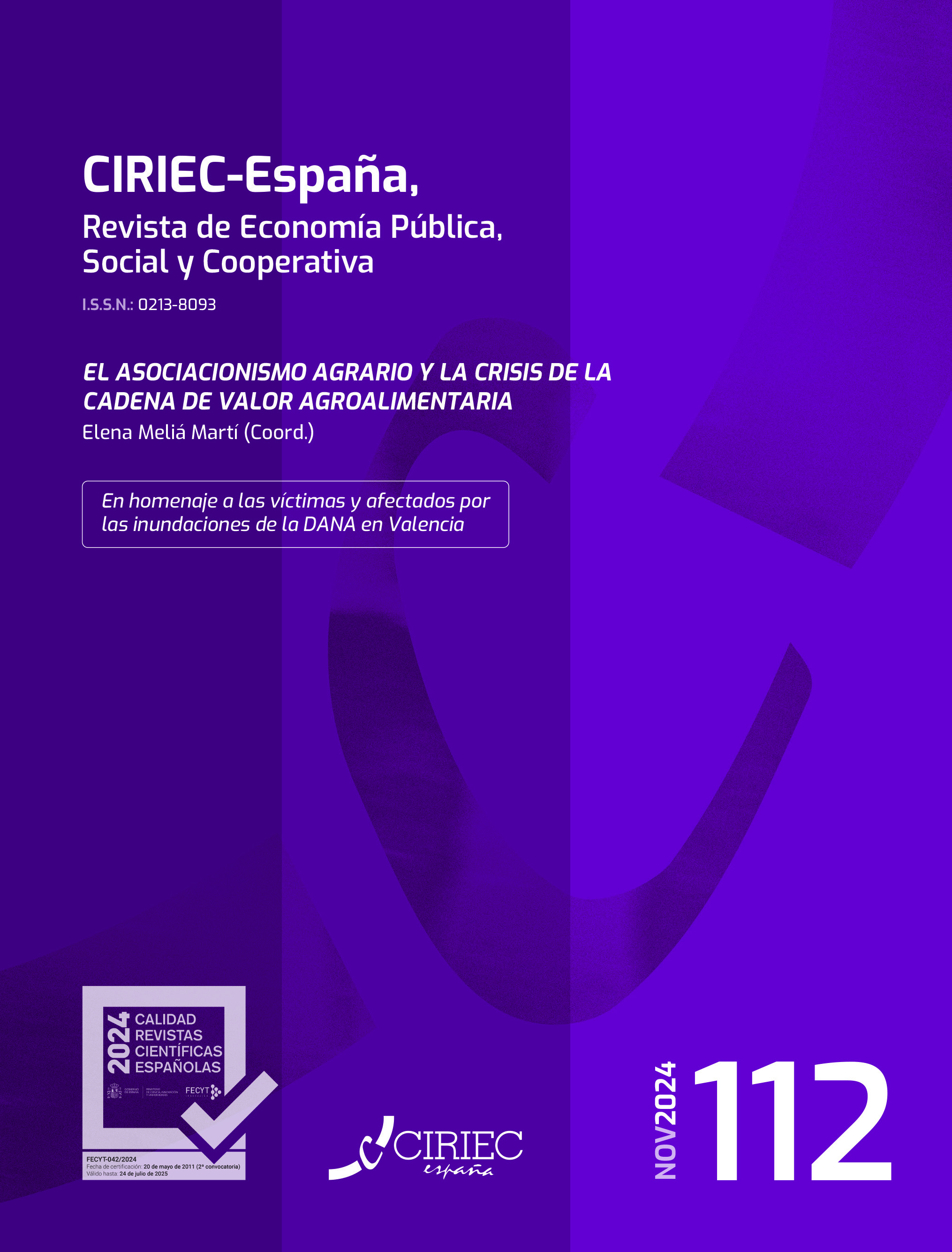Cooperation agreements in the food chain: win-win relationships for a more sustainable chain. The case of Mercadona
DOI:
https://doi.org/10.7203/CIRIEC-E.112.28808 Resumen
Resumen
The aim of this paper is to study the impact of cooperation between operators in the food supply chain. And particularly between two of the operators (retailers and suppliers) whose relationship, given the asymmetry between them, has often been questioned and labelled as unequal, favouring the stronger party. Specifically, we will analyze the most demanding type of agreement for suppliers, as it involves exclusive supply. This paper aims to study whether the collaborative relationships between these two food chain operators benefit both parties equally and, therefore, contribute to the economic sustainability of the chain. To this end, we analyze whether it is worthwhile for a supplier in the retail grocery sector to develop a long-term exclusivity collaboration agreement with a retailer to whom they sell their entire production or most of it (exclusive key retailer account). For this purpose, we have analyzed Mercadona’s suppliers, the largest food distribution company in Spain, at a time when their relationship was based on exclusivity. Through inferential statistics and a logistic panel regression, a comparison of Mercadona’s exclusive suppliers with two control groups (subsector and non-Mercadona intersuppliers obtained by matching) has been carried out.
The results suggest that this type of exclusive collaboration agreement, in the case of Mercadona with its exclusive suppliers, is beneficial and profitable for the weaker party, the supplier. Our findings provide evidence that collaboration and cooperation between suppliers and retailers can provide a win-win relationship, the key to which is maintaining effective cooperation between both parties in order to accomplish common goals.
 Descargas
Descargas
Publicado
Cómo citar
-
Resumen187
-
PDF 48
-
XML 2
Número
Sección
Licencia
El Copyright será de CIRIEC-España, revista de economía pública, social y cooperativa, a los solos efectos de favorecer la difusión de los artículos publicados (firmar contratos de difusión, de integración en bases de datos, etc.). Los autores también mantienen el copyright sobre su obra y pueden depositar su artículo en el formato electrónico oficial de la revista en su página web personal y en los repositorios institutionales de su grupo de investigación. No obstante, se autoriza la reproducción y distribución de todos los artículos publicados, siempre que no se modifique el contenido y se indique su origen (CIRIEC-España, revista de economía pública, social y cooperativa, número y dirección electrónica del documento o DOI). El envío de un artículo a CIRIEC-España, revista de economía pública, social y cooperativa supone la aceptación de estas condiciones.



